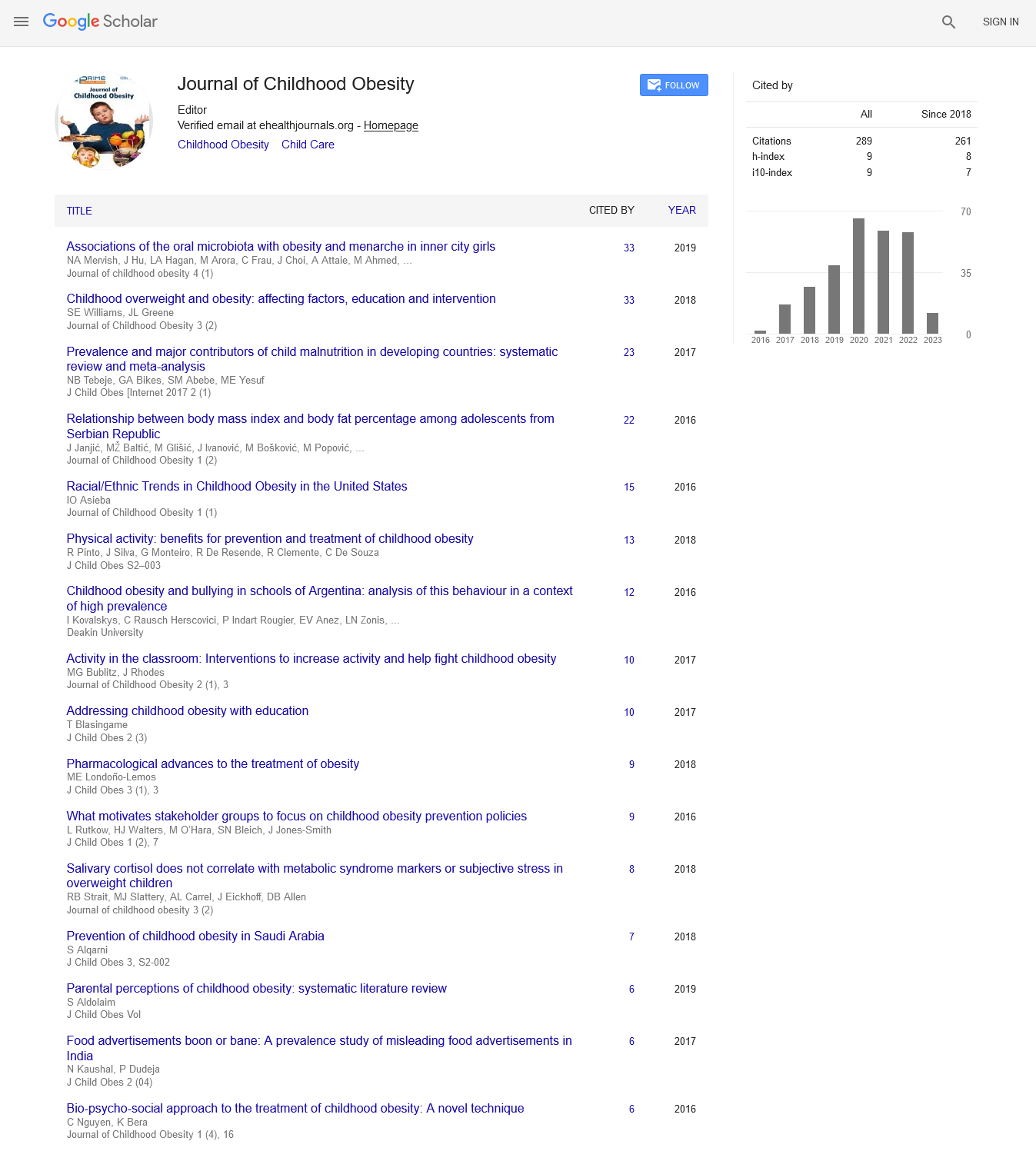Commentary - (2024) Volume 9, Issue 1
The Junk Food Dilemma: How Unhealthy Eating Habits Impact Childhood Obesity
Eli Valentina*
Department of Obesity, University of Arizona, USA
*Correspondence:
Eli Valentina,
Department of Obesity, University of Arizona,
USA,
Email:
Received: 31-Jan-2024, Manuscript No. ipjco-24-19169;
Editor assigned: 02-Feb-2024, Pre QC No. ipjco-24-19169 (PQ);
Reviewed: 16-Feb-2024, QC No. ipjco-24-19169;
Revised: 21-Feb-2024, Manuscript No. ipjco-24-19169 (R);
Published:
28-Feb-2024, DOI: 10.21767/2572-5394-24.9.08
Description
In an era dominated by convenience and instant gratification,
the prevalence of junk food has skyrocketed, significantly
impacting the health and well-being of children worldwide.
Defined as highly processed, energy-dense foods with
minimal nutritional value, junk food has become a ubiquitous
presence in children’s diets, contributing to the escalating
rates of childhood obesity. Understanding the complex
relationship between junk food consumption and obesity
is paramount in addressing this pressing public health issue.
The allure of junk food lies in its palatability, affordability, and
accessibility. From sugary snacks and carbonated beverages
to deep-fried delicacies and fast food fare, these indulgent
treats tantalize the taste buds while offering little in terms of
essential nutrients. High in calories, sugar, unhealthy fats, and
sodium, junk food provides a quick energy boost but lacks the
sustained nourishment necessary for optimal health. Regular
consumption of these empty-calorie foods not only displaces
nutrient-rich options from children’s diets but also contributes
to excessive calorie intake and weight gain. One of the primary
ways in which junk food impacts childhood obesity is through
its role in promoting energy imbalance. Junk food is often
calorie-dense but nutrient-poor, leading children to consume
more calories than their bodies require without meeting their
nutritional needs. This surplus of energy is stored as fat, leading
to weight gain and, ultimately, obesity. Moreover, the addictive
nature of many junk foods, which are engineered to be hyperpalatable
and trigger pleasure centers in the brain, can lead to
overeating and cravings for unhealthy fare. Furthermore, the
pervasive marketing and advertising of junk food to children
exacerbate the problem. From colorful packaging and catchy
slogans to celebrity endorsements and toy promotions,
children are bombarded with messages that glamorize
unhealthy food choices. This targeted marketing not only
normalizes the consumption of junk food but also undermines
efforts to promote healthier alternatives. Coupled with the
convenience of fast food outlets and vending machines in
schools and communities, children are constantly surrounded
by temptations that make it difficult to resist unhealthy eating
habits. Addressing the impact of junk food on childhood obesity
requires a multi-pronged approach that involves stakeholders
at all levels. Parents play a critical role in shaping their children’s
eating habits by modeling healthy behaviors, providing
nutritious meals and snacks, and limiting access to junk food
at home. Educators can promote nutrition education and
create environments that support healthy eating choices, such
as school gardens and cafeteria initiatives. Policymakers must
implement regulations to restrict the marketing of junk food to
children, improve food labeling and transparency, and create
healthier food environments in schools and communities. In
conclusion, the pervasive influence of junk food on childhood
obesity underscores the urgent need for action to promote
healthier eating habits among children. By addressing the root
causes of unhealthy eating behaviors and creating supportive
environments that facilitate nutritious choices, we can stem
the tide of obesity and improve the health and well-being of
future generations. From the dinner table to the classroom to
the halls of government, everyone has a role to play in tackling
the junk food dilemma and ensuring a healthier future for our
children.
Acknowledgement
None.
Conflict Of Interest
The author’s declared that they have no conflict of interest.
Citation: Valentina E (2024) The Junk Food Dilemma: How Unhealthy Eating Habits Impact Childhood Obesity. J Child Obesity. 9:08.
Copyright: © 2024 Valentina E. This is an open-access article distributed under the terms of the Creative Commons Attribution License, which permits unrestricted use, distribution, and reproduction in any medium, provided the original author and source are credited.

